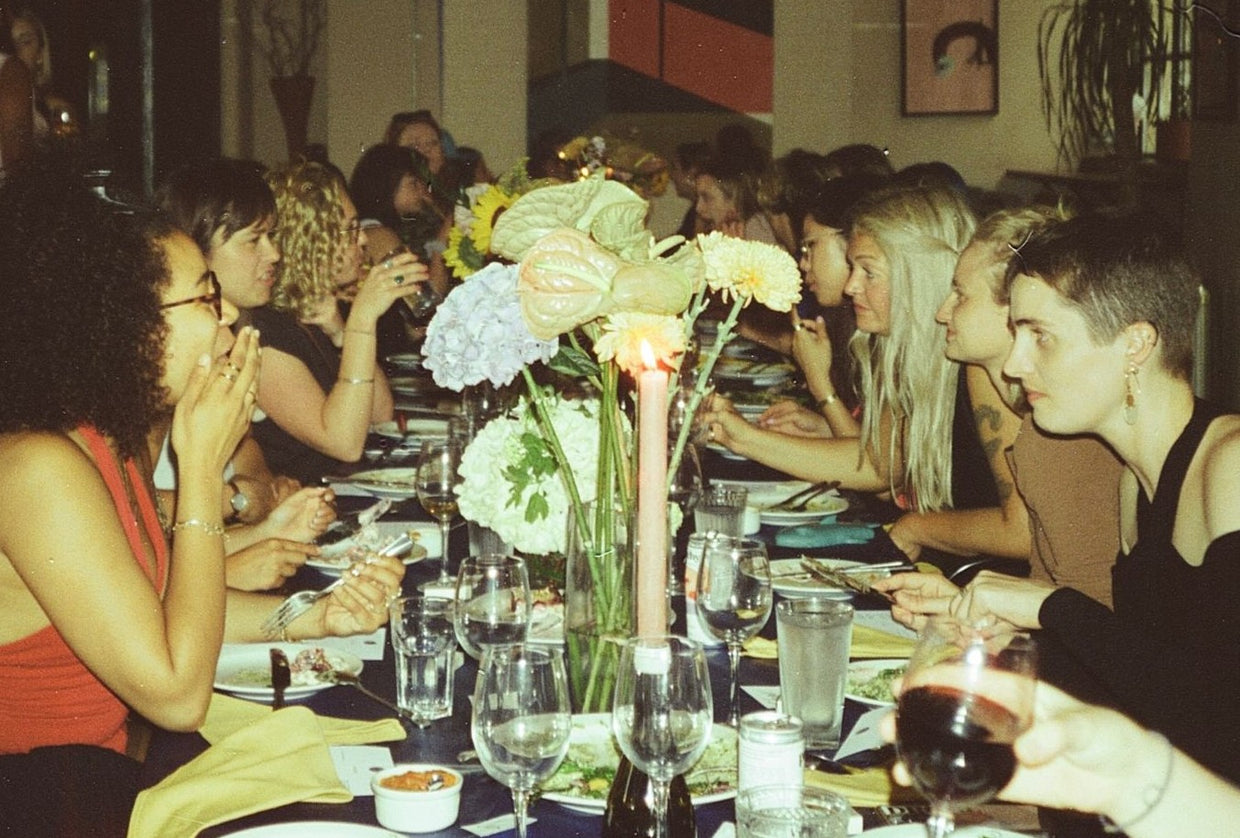Bleed On It by Lara Monro

The screen adaptation of Sally Rooney’s Conversations With Friends graced IPLAYER on Sunday 15 May. Witnessing the realistic yet alarming treatment of main protagonist, Frances’, menstrual pain was arguably the most profound element of the whole series. We feel deeply for Frances as she endures a multitude of traumatic events that are all instigated by her ‘menstrual pains’: the prospect of a miscarriage, multiple evenings spent on the bathroom floor doubled up in agony, and finally, an evening spent in hospital which leads to the diagnoses of endometriosis.
Endometriosis is a condition where tissue similar to the lining of the womb starts to grow in other places, such as the ovaries and fallopian tubes. On average, it takes 8 years from the onset of symptoms to be diagnosed and affects 10% of women from puberty to menopause. That is over 1.5 million in the UK and 176 million globally. The limited knowledge and research on women’s health means we still don’t know what causes the condition. This is magnified by the cultural taboos around menstruation, which restrict discussion on the topic and has resulted in limited understanding or vocabulary to describe the physical and mental experiences.
As a result, the stigma around periods perpetuate negative emotions from a young age. The girls’ rights charity Plan International UK recently surveyed 1000 girls aged 14-21 to ask about their experiences of menstruation. One in seven admitted they did not know what was happening when they started their period and more than a quarter reported they did not know what to do when bleeding for the first time. And no wonder. It took until 1985 for the word period to be said in a TV commercial.
Within mainstream media, menstruation has long been portrayed as a hygiene issue with the focus on cleansing and deodorizing. This has created subliminal messaging that periods (and by extension, the people who have them) are dirty and smelly. Many brands still use terms such as “virtually undetectable” or advertise their product has a “discreet wrapper” to ensure “discreet protection”, which again suggests the need to hide the fact you’re bleeding.
While we are starting to see changing attitudes towards periods - including Spain’s new law on menstrual leave for those with severe pain - we still have a long way to go. Fortunately, there are individuals, collectives and communities taking matters into their own hands by sharing information on menstrual cycles: the different phases, why nutrition can support your cycle, and how we can harness creativity, productivity and power from leaning into our own unique experience of our cycles.
Bleed On It was founded in 2019 by Robyn Wilton. Living at home during COVID-19, Robyn battled with her mental health. Feeling disconnected and isolated she found solace in a new interest for understanding her menstrual cycle, which in turn led her to slowly understand her body’s needs more, and to reassess almost every element of her life. With a thirst for knowledge and expansion, she picked up an array of books, including Period Power by Maisie Hill. Since then, based on how much this information has positively impacted her own life, Robyn has not stopped in her quest to learn, unravel and share the ways in which the menstrual cycle impacts our energy levels, mood, productivity, relationships and so much more.
Her dedication to exploring our cycle’s endless empowering possibilities was the catalyst for Bleed On It. The safe, inclusive and informative space has grown organically over the last year and a half. Robyn defines her self as a facilitator whose aim is to normalise and spread awareness in tangible and interactive formats on The Menstrual Cycle. Through her regular posts and stories on the topic she advocates menstrual cycle awareness through collaboration, inviting conversation with menstrual cycle experts, nutritionists and earlier this year, hosting yoga workshops that support the different phases of the cycle.
Robyn’s love for food and conversation inspired the first Bleed On It supper club, offering 4 menus curated to support the four hormonal phases of the cycle: follicular, ovulation, luteal and menstrual (check out @bleedonit to check them out). Robyn partnered with Albers at the Block, to deliver the bespoke and delicious menus. To ensure connection between the guests, Robyn invited everyone to speak amongst themselves about their period knowledge and experiences and hosted a fun and informative quiz on the topic. It was a safe and welcoming space that allowed everyone to engage and learn from one another. Finally, the evening finished with a stunning and intimate performance by the Bristol based singer and song-writer, @Chazzychunes whose lyrics reflected her beautifully inquisitive, sensitive and deep soul. The
It is promising to see collectives such as Bleed On It providing resources which support women on their menstrual cycle journeys. Similarly, it is a sign of progress to see the makers behind ‘Conversations with Friends’ highlighting Frances’ long drawn out suffering as a result of her undiagnosed condition. Knowing that individuals, like, Frances have the scope to connect with platforms such as Bleed On It shows there is progress. But, we still need to work hard to make sure all women, those that bleed, those that are following their monthly inner cycles - post-partum or post menopause - know about these spaces.
